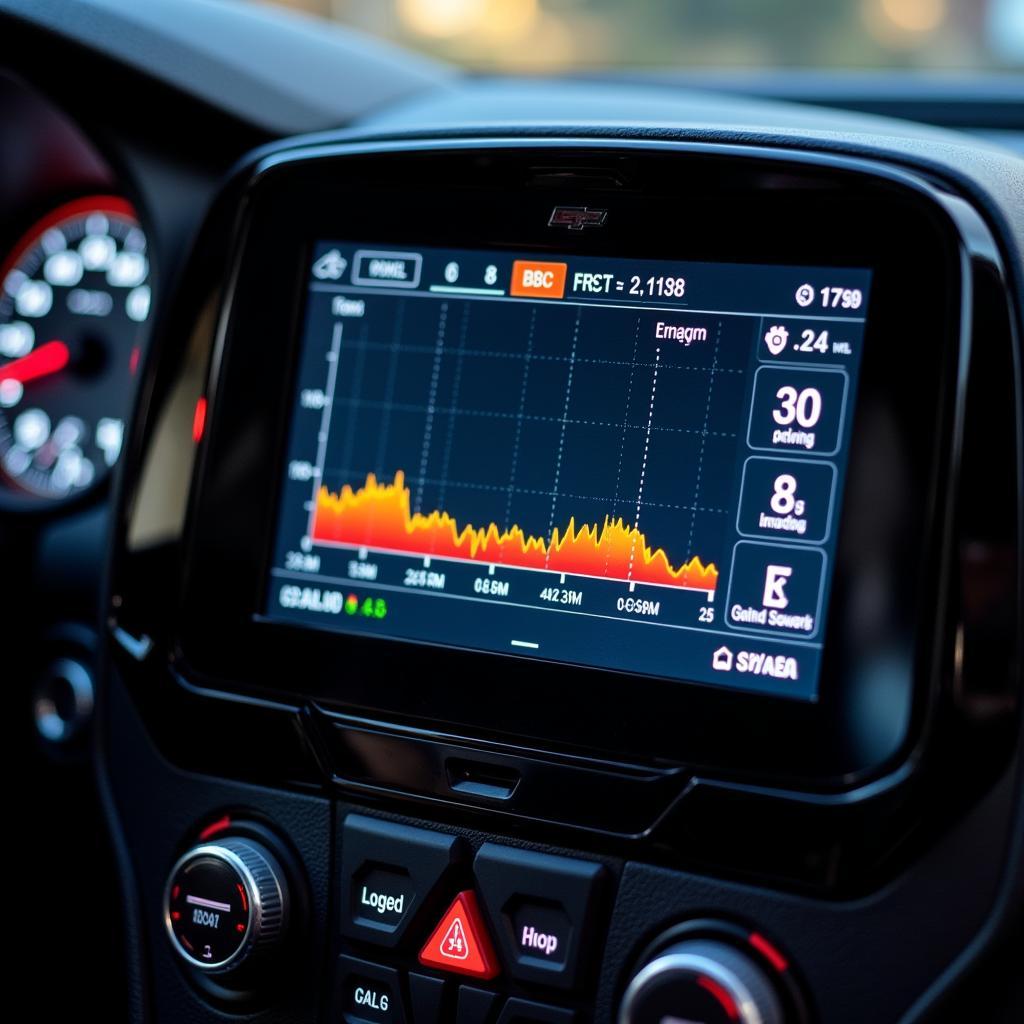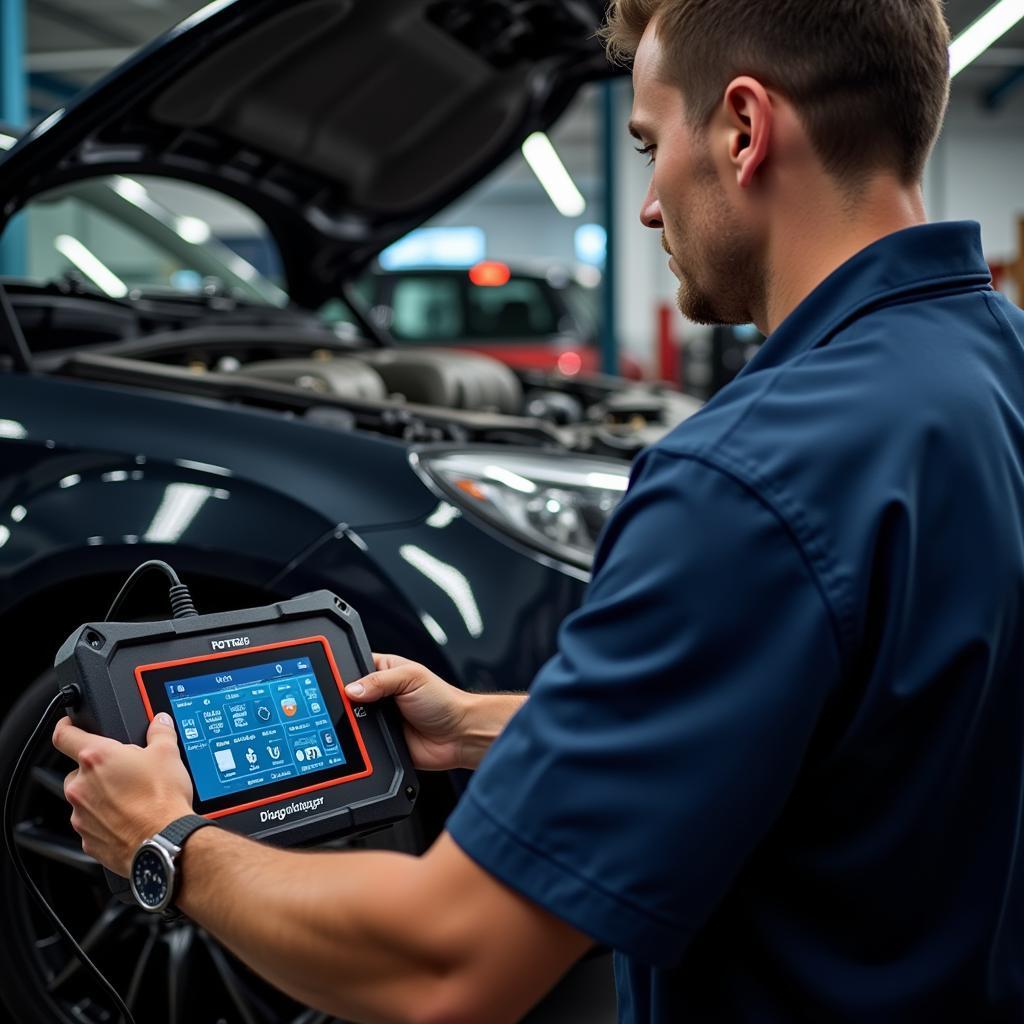When it comes to car repair, having the right diagnostic machine can mean the difference between a quick fix and hours of wasted time. But with so many options available at various price points, finding the best diagnostic machine for cars for your needs can feel overwhelming. This article breaks down the factors influencing Diagnostic Machine For Cars Price, helping you make an informed decision.
Understanding Your Diagnostic Needs
Before diving into pricing, it’s crucial to assess your specific needs.
- DIYer or Professional: Are you a car enthusiast working on your own vehicles, or a professional mechanic dealing with a wide range of makes and models? DIY users might find entry-level scanners sufficient, while professional mechanics need more advanced functionalities.
- Vehicle Coverage: Do you work on a single car brand, or do you need a scanner that covers multiple makes and models? Keep in mind that some diagnostic machines specialize in specific brands, while others offer wider compatibility.
- Functionality: What systems do you need to diagnose? Basic scanners read and clear engine codes, while advanced models offer functionalities like live data streaming, bi-directional control, and programming capabilities.
Factors Affecting Diagnostic Machine for Cars Price
The price of diagnostic machines can vary significantly, from under $100 to several thousand dollars. Here are the key factors that influence the cost:
1. Software Capabilities
The software is the brain of your diagnostic machine, directly impacting its price.
- Code Reading and Clearing: All diagnostic machines offer this basic functionality, reading and clearing engine codes.
- Live Data Streaming: This feature allows you to see real-time data from various sensors, aiding in diagnosing intermittent problems.
- Bi-Directional Control: This advanced feature enables you to interact with vehicle systems, like turning components on/off for testing purposes.
- Programming and Coding: High-end diagnostic machines can perform software updates, key programming, and module coding.
2. Vehicle Coverage
Diagnostic machines offer varying levels of vehicle coverage.
- Brand Specific: These machines are tailored for a single car brand, offering in-depth diagnostics for that specific make.
- Multi-Brand: As the name suggests, these scanners support a wide range of car brands. However, the depth of diagnostic capabilities might vary between manufacturers.
- OEM-Level: Original Equipment Manufacturer (OEM) level diagnostic machines provide the most comprehensive coverage and functionality for a specific car brand, often used by dealerships and specialized repair shops.
3. Hardware and Design
The physical construction and design also contribute to the overall cost.
- Build Quality: Durable and robust machines designed for professional use command a higher price than those intended for occasional DIY use.
- Display: The size and resolution of the screen affect user experience and price. Larger, high-resolution displays are easier to read but come at a premium.
- Connectivity: Features like Bluetooth, Wi-Fi, and USB ports influence the price. Wireless connectivity allows for convenient data transfer and software updates.
 Advanced Features of Diagnostic Machines
Advanced Features of Diagnostic Machines
Price Ranges and What to Expect
Now that you understand the factors influencing price, let’s explore the general price ranges:
1. Entry-Level Scanners ($50 – $300)
- Ideal for: DIYers and car enthusiasts on a budget.
- Features: Basic code reading and clearing for engine-related issues.
- Limitations: Limited vehicle coverage, may not support newer car models.
Example: Basic OBD-II code readers.
2. Mid-Range Scanners ($300 – $1,500)
- Ideal for: Home mechanics and small workshops.
- Features: More extensive code reading and clearing, live data streaming for some systems, and potentially bi-directional control for specific models.
- Limitations: Might not cover all car brands and may have limited advanced functionalities.
Example: Autel MaxiCOM MK808, Delphi DS150E Car Diagnostic Tool
3. High-End Scanners ($1,500 – $10,000+)
- Ideal for: Professional mechanics, specialized repair shops, and dealerships.
- Features: Comprehensive code reading and clearing, extensive live data streaming, bi-directional control, programming capabilities, and wide vehicle coverage.
- Limitations: High cost might be a barrier for some.
Example: Snap-on Verus, Launch X431
 Professional Mechanic Using High-End Scanner
Professional Mechanic Using High-End Scanner
Making the Right Investment
Choosing the right diagnostic machine is an investment. Consider these tips:
- Prioritize Your Needs: Clearly define your diagnostic requirements based on the type of vehicles you work on and the functionalities you need.
- Research Thoroughly: Compare different brands and models, paying attention to user reviews, features, and vehicle compatibility.
- Consider Future Needs: If you anticipate working on newer car models or expanding your services, invest in a machine with future-proofing capabilities like software updates and expandability.
Conclusion
Finding the right diagnostic machine for your needs and budget requires careful consideration. By understanding the factors influencing diagnostic machine for cars price and assessing your requirements, you can make an informed decision that enhances your diagnostic capabilities and saves you time and money in the long run. Remember, a reliable diagnostic machine is an invaluable tool for any car enthusiast or professional mechanic.

Leave a Reply